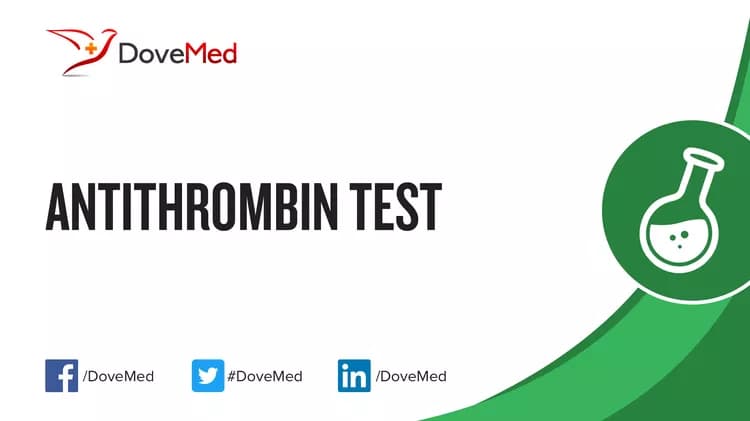What are the other Names for this Test? (Equivalent Terms)
- Antithrombin Activity Test
- AT 3 Test
- Functional Antithrombin III Test
What is Antithrombin Test? (Background Information)
- Antithrombin, a protein formed by the liver, is a natural “blood thinner” that protects the body from excessive or inappropriate blood clotting
- Whenever the body sustains an injury, certain proteins called coagulation factors, are activated in sequence, to form a blood clot. These clots plug any damaged blood vessels and prevent further blood loss
- In order to prevent undue or surplus formation of such clots, the protein antithrombin acts, by inhibiting many of the activated coagulation factors. Any deficiency of antithrombin can thus lead on to abnormal, recurrent clot formations (especially in the deep veins of the leg, a condition called deep vein thrombosis)
- Antithrombin Testing looks for :
- The functional status of antithrombin present in blood (Antithrombin Activity Testing)
- The amount of antithrombin present in blood (Antithrombin Antigen Testing)
- The test helps in diagnosing any antithrombin deficiency and also helps in differentiating between insufficient antithrombin amount (type 1 deficiency) and dysfunctional antithrombin (type 2 deficiency)
What are the Clinical Indications for performing the Antithrombin Test?
Indications for performing Antithrombin Tests include:
- Recurrent episodes of blood clot formation
- Apparent failure of blood thinning medications (like heparin) administered for various reasons
How is the Specimen Collected for Antithrombin Test?
Sample required: Blood
Process: Blood sample is drawn through a needle inserted into the vein (arm).
Preparation required: None
Note: Testing for antithrombin is not done during a clotting episode, when the individual is being treated for clot formation and heparin is used in treatment, both of which can influence the results. Under such circumstances, the test is usually conducted, about 2 months after the thrombotic (blood clotting) episode.
What is the Significance of Antithrombin Test Result?
Antithrombin Activity Testing is carried out first and the outcome may be as follows:
- A normal antithrombin activity denotes that the individual has adequate functioning antithrombin and that the cause for clotting may be some other reason
- Reduced antithrombin activity is further investigated with Antithrombin Antigen Testing, to analyze the amount of protein present.
- If the amount of antithrombin is sufficient, type 2 antithrombin deficiency is present
- If the amount of antithrombin is reduced, type 1 antithrombin deficiency is present
- Type 1 deficiency is rarely due to inherited causes. Commonly this occurs, secondary to conditions, such as liver disease, nephrotic syndrome (proteins are lost in urine), or disseminated intravascular coagulation (DIC, numerous blood clots form in the small blood vessels of the body)
- Increased antithrombin levels are usually not considered as being problematic
The laboratory test results are NOT to be interpreted as results of a "stand-alone" test. The test results have to be interpreted after correlating with suitable clinical findings and additional supplemental tests/information. Your healthcare providers will explain the meaning of your tests results, based on the overall clinical scenario.
Additional and Relevant Useful Information:
Certain medications that you may be currently taking may influence the outcome of the test. Hence, it is important to inform your healthcare provider, the complete list of medications (including any herbal supplements) you are currently taking. This will help the healthcare provider interpret your test results more accurately and avoid unnecessary chances of a misdiagnosis.
Related Articles
Test Your Knowledge
Asked by users
Related Centers
Related Specialties
Related Physicians
Related Procedures
Related Resources
Join DoveHubs
and connect with fellow professionals


0 Comments
Please log in to post a comment.